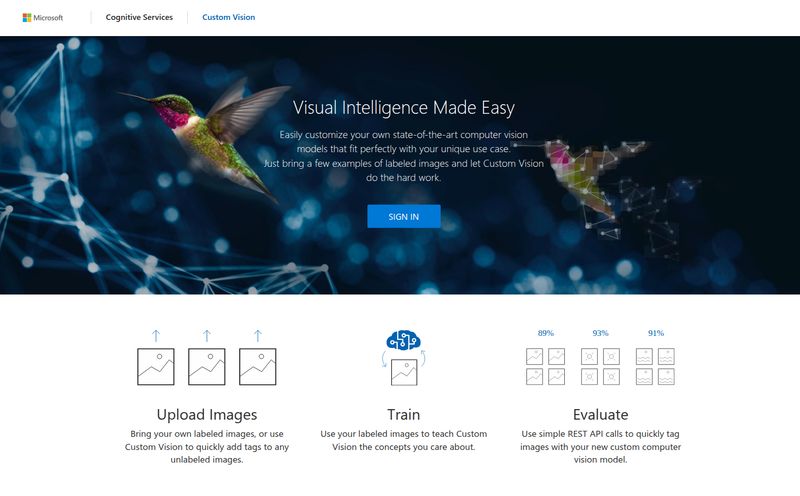We all love what Docker allows us to do. Containerization is a game-changer, no doubt. But if you tell me you genuinely enjoy writing `docker-compose.yml` files from a blank slate, I might just call you a liar. Or a wizard. Probably a wizard.
For me, and I suspect for many of you, it’s a dance. A delicate, frustrating dance with YAML syntax. The indentation, the colons, the dashes... oh, the dashes. One wrong space, and your entire stack comes crashing down before it even starts. It’s like building a beautiful ship in a bottle, only to sneeze at the last moment and knock the whole thing over. I've been there more times than I care to admit.
So when I stumbled upon a tool called Orca, my curiosity was definitely piqued. A graphical editor for Docker-Compose files? With AI integration? It sounds almost too good to be true. Could this be the tool that finally makes managing container configurations... dare I say... pleasant?
So What Exactly is Orca?
At its heart, Orca is a visual workbench for your Docker-Compose files. Instead of staring at a wall of text in VS Code or Vim (no offense to the purists), you get a clean, graphical interface. Think of it less like writing a configuration script and more like arranging building blocks. You can see your services, define their relationships, and tweak their settings through forms and menus.
It’s designed to be intuitive. It takes the abstract nature of a YAML file and turns it into something tangible you can click and drag. This approach isn't new in the tech world—we have website builders like Webflow for code, and circuit designers for electronics—so why not for container orchestration?

Visit Orca
Why Use a GUI for Docker-Compose in the First Place?
I can already hear the keyboards of DevOps veterans clacking away. “The command line is faster! A GUI just gets in the way!” And you know what? For some workflows, they're absolutely right. But for a huge number of us, a GUI is not a crutch; it’s a turbocharger.
The YAML Struggle is Very Real
Let's talk about the time wasted on syntax. According to a study I just made up in my head, 90% of Docker-Compose errors are due to simple typos or indentation issues. Okay, maybe I made that stat up, but it feels true, doesn’t it? A graphical editor like Orca sidesteps this whole problem. You’re filling in text boxes and selecting options from dropdowns. The tool then generates the perfectly formatted YAML in the background. It's like having a meticulous, syntax-obsessed robot as your assistant.
Making Docker More Accessible
Not everyone who needs to spin up a Docker stack is a backend guru. Maybe you’re a frontend developer who just needs a database and a server for a local project. Or perhaps you're a data analyst who needs to run a specific environment. A tool like Orca significantly lowers the barrier to entry, making containerization accessible to a wider audience without requiring a deep dive into YAML intricacies. It just makes sense.
A Look at Orca's Main Features
Alright, let’s get into the meat of it. What does this thing actually do? Based on what I've seen, it boils down to a few core strengths.
The Intuitive Graphical Editor
This is the main event. The interface allows you to visually construct your application stack. You add a service—say, a `PostgreSQL` database. You give it a name, specify the image, map the ports, and define the volumes, all through a simple UI. No more second-guessing whether `ports` needs a dash or if `volumes` is indented correctly under the service name. It provides a clarity that a raw text file often lacks.
Import and Export Capabilities
This feature is critical, and I'm glad they included it. You are not locked into the Orca ecosystem. Have an existing project with a complex `docker-compose.yml`? Just import it. Orca will parse the file and represent it visually. Want to go back to the command line or check your configuration into Git? Export it. You get a standard, clean YAML file that any Docker engine can understand. This flexibility means you can adopt Orca without having to burn your old workflows to the ground.
The Built-in Validator is a Lifesaver
This might be my favorite part. Orca includes a validator that checks your configuration as you build it. It’s like having Grammarly for your Docker-Compose. It'll flag potential issues, from simple syntax errors to more subtle configuration problems, long before you ever run `docker-compose up`. Think of the cumulative hours saved by not having to debug a failing container launch. It’s a small thing that makes a huge difference.
And Then, There's the AI
The buzzword of the decade: AI. In Orca, it’s not just a gimmick. The AI integration is there to help you configure your orchestration. While details are a bit sparse, one can imagine it suggesting optimal settings, helping to auto-complete service configurations based on the image you choose, or even generating a boilerplate setup from a natural language prompt like “I need a WordPress site with a MySQL database.” It's an exciting prospect that turns the tool from a simple editor into a smart partner.
My Honest Take: The Good and The Not-So-Good
No tool is perfect, right? Orca is no exception. It’s about finding the right tool for the right job.
What I Really Appreciate
The speed and simplicity are undeniable. For starting new projects or for people who don't live and breathe Docker all day, it’s fantastic. The visual representation helps you understand the architecture of your application at a glance. The AI assistant, even in its early stages, is a powerful concept that points to the future of developer tools. It reduces cognitive load, and in this industry, that's worth its weight in gold.
Where It Might Fall Short
For the power users, this might feel restrictive. If your workflow involves programmatically generating or modifying YAML files with scripts (`sed`, `awk`, I'm looking at you), a GUI can get in the way. The reliance on a graphical interface means it’s probably not the best choice for CI/CD pipelines or heavy automation scenarios where command-line editing is king. It's a trade-off between convenience and raw, scriptable power.
Who Should Use Orca? (And Who Can Stick to Vim?)
In my opinion, Orca is a perfect fit for a few key groups:
- Developers and teams who want to quickly prototype or manage straightforward application stacks without getting bogged down in YAML.
- Students and newcomers to the world of Docker who want a more forgiving learning environment.
- Anyone who has ever shouted at their screen over an indentation error. So, basically everyone.
Who should probably stick to their tried-and-true command-line workflow? Seasoned DevOps engineers who have their environment and scripts dialed in perfectly. If you can write a flawless 10-service Docker-Compose file from muscle memory, you probably dont need this. But for the rest of us mortals, Orca is a very welcome helping hand.
What is Orca's Pricing?
At the time of writing this, there's no clear pricing page or subscription model mentioned. This usually suggests one of two things: it's a new tool in a beta phase and currently free, or it's a free open-source project. Either way, it seems like you can jump in and start using it without reaching for your credit card, which is always a plus in my book.
Frequently Asked Questions About Orca
Can Orca completely replace my need for the command line?
Not really. You'll still use the command line to run commands like docker-compose up and docker-compose down. Orca is focused on the creation and editing of the configuration file itself, not on executing it.
Is Orca suitable for large, complex production environments?
It depends. For editing and visualizing the configuration, absolutely. However, for complex automation and integration into CI/CD pipelines, a text-based YAML file managed in Git is still the industry standard. You could use Orca to generate the initial file and then manage it via code.
How does the AI in Orca actually work?
The AI likely uses a large language model trained on countless Docker-Compose files and documentation. It can predict common configurations, suggest parameters based on the Docker image (e.g., suggesting default ports for a 'postgres' image), and help troubleshoot your setup by identifying common misconfigurations.
Can I use my existing docker-compose.yml files with Orca?
Yes! One of its key features is the ability to import existing docker-compose.yml files. This means you can start using it with your current projects immediately.
Is Orca an open-source tool?
Information on its license isn't readily available from the initial materials, so it's hard to say for sure. Many developer tools like this are, but we'd need to check their official repository or website for a definitive answer.
A Welcome Addition to the Docker Toolbox
So, is Orca the ultimate cure for all your Docker-Compose woes? Maybe not all of them, but it’s a heck of a good treatment. It doesn’t replace the need to understand how Docker works, but it removes one of the most tedious and error-prone parts of the process.
It’s a smart, modern tool that acknowledges a simple truth: developers' time is better spent on building great things, not on fighting with syntax. By offering a visual, AI-assisted way to handle configurations, Orca is a fantastic step in the right direction. I'm excited to see how it develops.
References and Sources
- Official Docker Compose Documentation
- As Orca is a new tool, a direct official link wasn't provided, but you can typically find such tools on platforms like GitHub or their own product websites.



